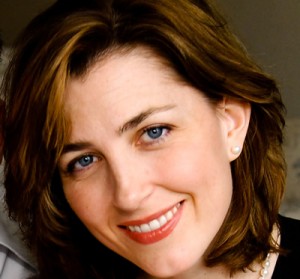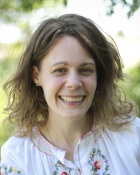 Recently, I had the opportunity to read a book that really shook me. It’s not often that I find myself loving a memoir, but the latest by Colleen Carroll Campbell, My Sisters the Saints: A Spiritual Memoir (Image Books, 2012), is just such a book.
Recently, I had the opportunity to read a book that really shook me. It’s not often that I find myself loving a memoir, but the latest by Colleen Carroll Campbell, My Sisters the Saints: A Spiritual Memoir (Image Books, 2012), is just such a book.
In no way does Campbell give in to the temptation just to tell us about the saints in a long “we could find that on Google” lecture. She does not reduce the saints to her own take on them, either.
In fact, within this book is some of the best writing I’ve seen and a style that captivated even me, an admitted non-biography/memoir-reader.
This is a book that documents an ongoing conversion in a way that I found engaging and thought-provoking. I caught myself marking passages and shaking my head.
I also found myself with tears running down my face. Campbell’s struggles with her own conversion and understanding, with her father’s declining health, and with her infertility were shared intimately in this book. It took some kind of courage to write the way she did throughout this book, and it was a light to me.
Enjoying the book so much made my recent conversation with Colleen even better. She graciously took the time out of her busy schedule to answer a few questions for readers here at Integrated Catholic Life.
Colleen’s an author, columnist, television and radio host and former presidential speechwriter. You’ll find her writing op-ed columns and covering breaking news. You can learn more about Colleen and the vast array of work she does at her website, but now we’ll get on with the interview…
Colleen, your new book, My Sisters the Saints, has been wildly popular. What part of the message you share in it do you think has resonated so deeply with readers?
I think the personal nature of My Sisters the Saints resonates most with readers. At least, that’s what readers comment on most often. Many have told me that they struggled to relate to the saints in the past but reading about the ups and downs of my life and how the saints helped me through those has helped them connect to these holy women in a new way. And that was my hope for this book: that it would serve as a “gateway drug” to get more readers hooked on the saints.
Tell us about how the women saints you researched opened your eyes and heart to the true meaning of “femininity.”
Each of the six women saints whose stories I interweave with my own in My Sisters the Saints taught me something different about being feminine and about womanhood.
Teresa of Avila taught me the true meaning of liberation when I was a college student just beginning to awaken to the fact that secular feminism’s version of liberation wasn’t all it was cracked up to be. Therese of Lisieux taught me to recognize and exercise my feminine gift for focusing on the dignity of every human person, especially the weakest among us – a great help when I was struggling to make sense of my father’s Alzheimer’s diagnosis. Edith Stein tossed me the lifeline of her teaching on spiritual maternity, which helped me cope with some painful questions raised by my struggle with infertility.
I could go on, but you get the picture. These are extraordinary women.
In integrating the lives of women saints into your own memoir, Colleen, what was the most striking lesson you learned? How were you changed by the process that you went through to do this writing and research?
The “research” for this book was really just living my life, and reading the lives of the saints as I journeyed through the eventful 15-year period of my life that is chronicled in this book. So there was not a research phase, per se. But the writing of the book certainly forced me to make sense of all that I had experienced on that journey (which is, of course, ongoing). And it helped me recognize how much grace had been operating even in dark and dry chapters of my life.
One of the most striking lessons was that God had been working so beautifully in my life at the very times I had felt as if nothing much was happening, even at times I had felt forgotten by him.
What lesson in integrating our Catholic faith with the “rest” of our life would you say your book and the lives of these saints holds for us?
Perhaps the greatest lesson I learned from the saints and from the struggles chronicled in this book – particularly with infertility and Alzheimer’s – was that God is found in the nitty-gritty, unvarnished reality of our daily lives. He and his grace are found exactly where we are, in the real feelings we experience and the real struggles we face.
And his saints are not fairy-tale, plaster-of-Paris figures who never knew temptation or difficulty. They are human beings just like us who, in their most challenging and difficult moments, decided to get real with God, to turn their sufferings and failures over to him, and trust him to do for them what they could not do for themselves.
So we don’t have to get ourselves all prettied up and perfected before we can turn to God. We can draw near to him right now, right where we are, in all our weakness. And he will use that weakness to lead us to eternal joy.
If you found yourself with the chance to speak one-on-one to any of the saints you include in your book, which one would you select and why?
Mary – not just because she is the mother of God, but because she is truly my mother, too. I learned that through the events chronicled in My Sisters the Saints. Mary is the most genuinely loving and liberated woman who has ever lived. And the great thing is that I can speak to her one-on-one, anytime I want. That’s the power of the communion of saints, a power that I hope readers of this book will rediscover for themselves.
Sarah Reinhard’s a Catholic wife, mom, and author whose nose is probably in a book if she’s not scraping something off of her shoes. Her latest book is A Catholic Mother’s Companion to Pregnancy: Walking with Mary from Conception to Baptism and she’s online at SnoringScholar.com.
Visit Sarah’s blog: http://SnoringScholar.com/
Check out her books: http://SnoringScholar.com/my-books/
Please help us in our mission to assist readers to integrate their Catholic faith, family and work. Tell your family and friends about this article using both the Share and Recommend buttons below and via email. We value your comments and encourage you to leave your thoughts below. Thank you! – The Editors













